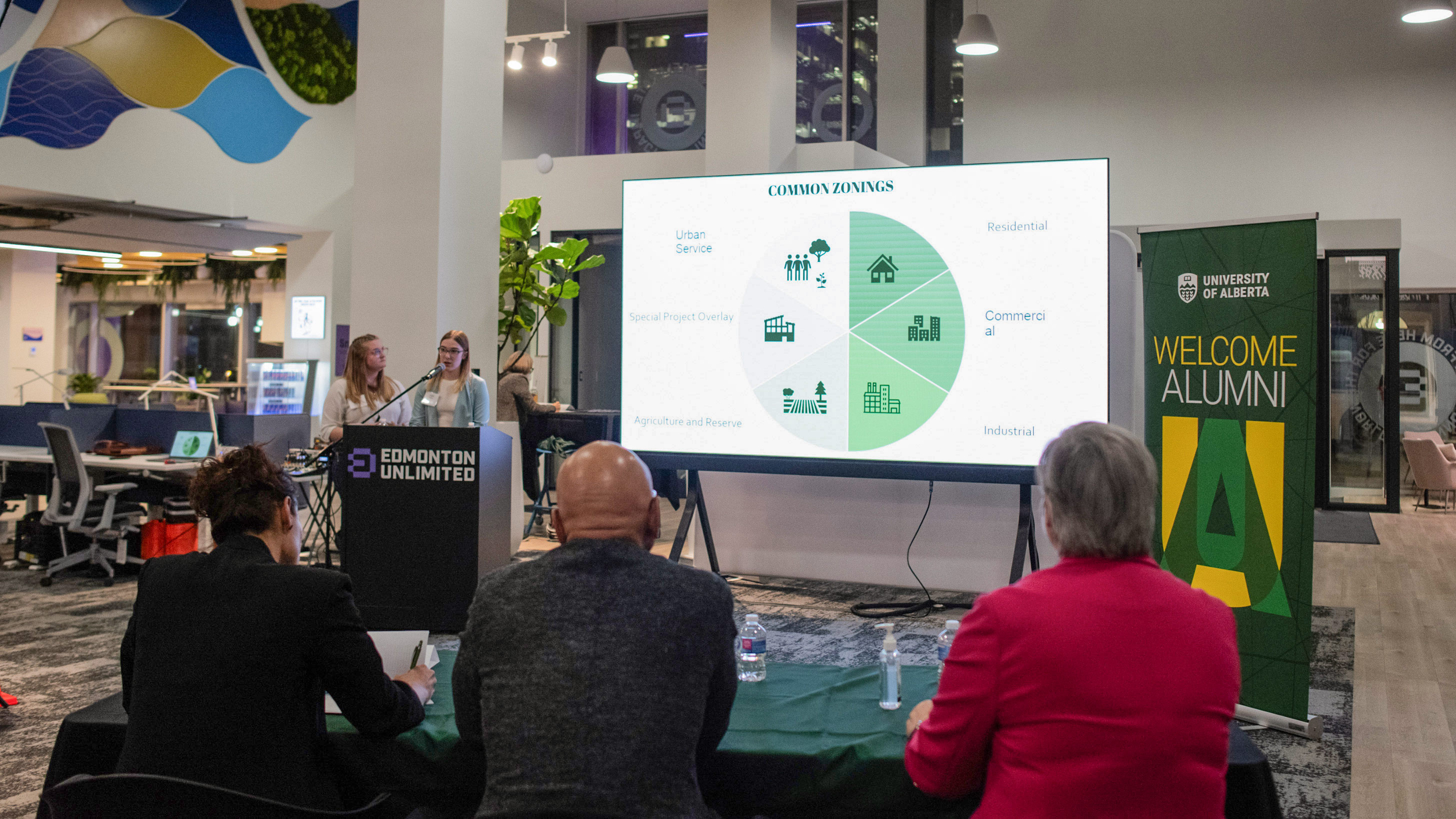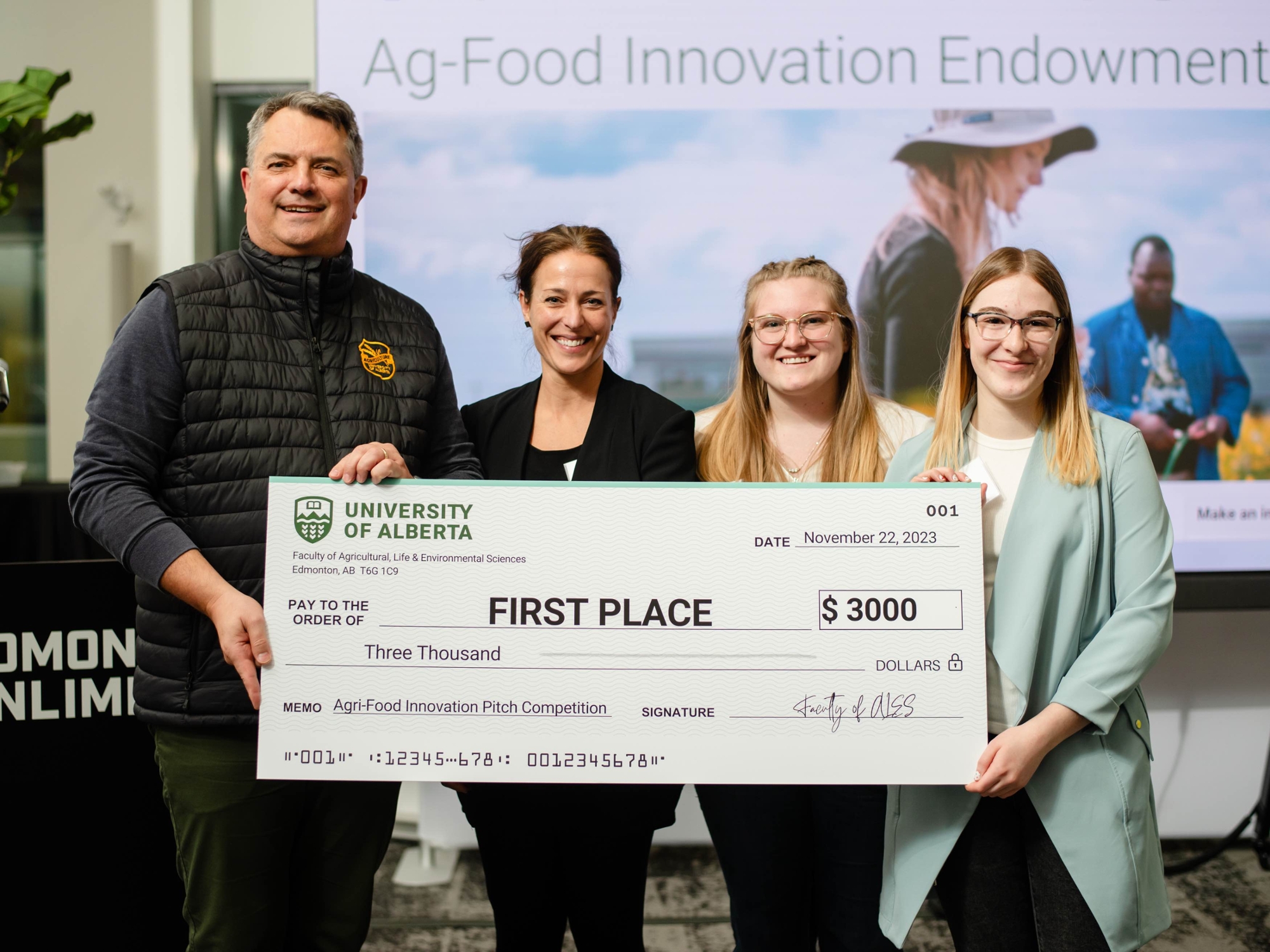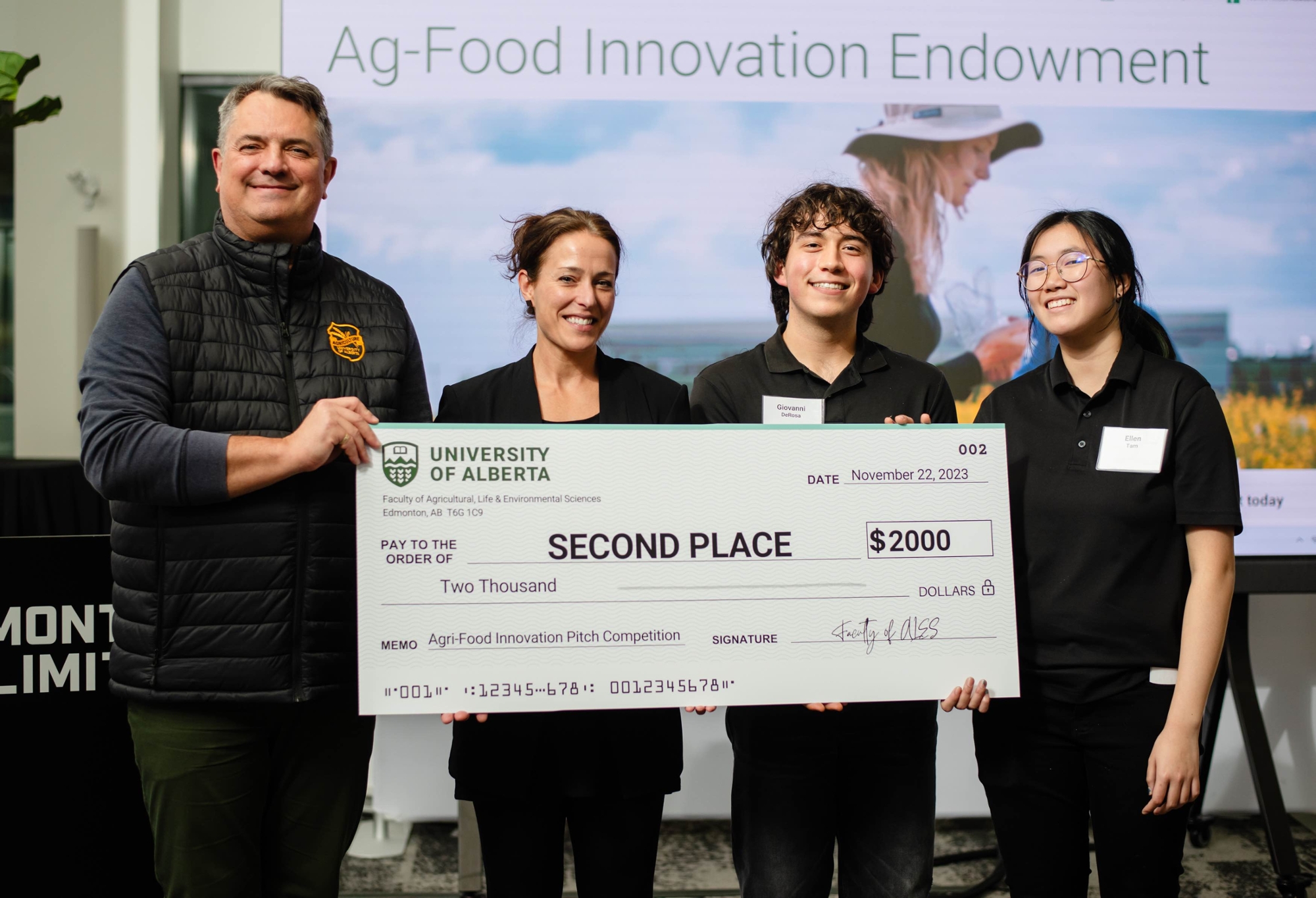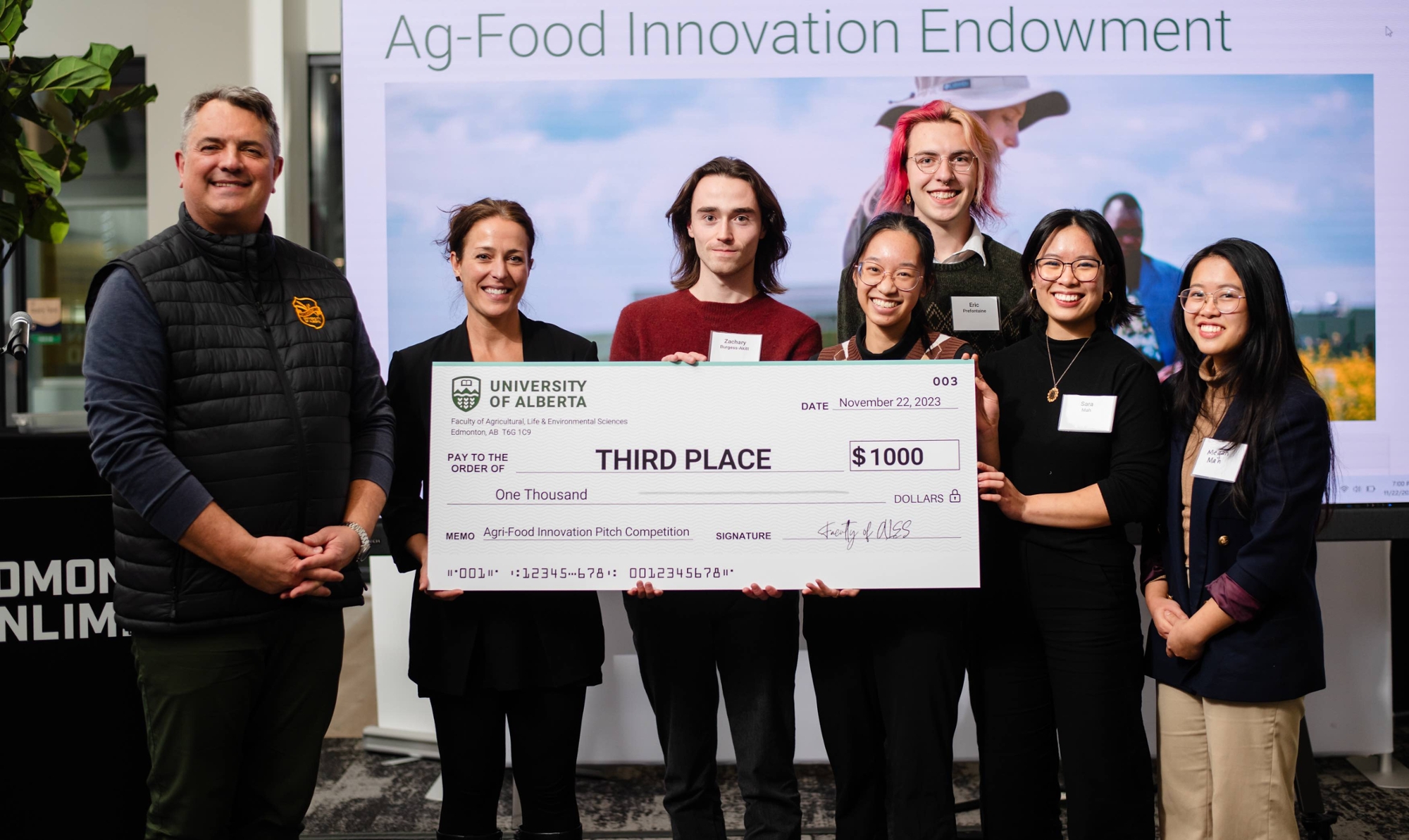Announcing the winners of the Agri-Food Innovation Student Pitch Competition
11 December 2023

Jennah and Jazdn present their winning pitch, Welcome to the World of MAG Blocks.
The demographics at Edmonton Unlimited were a little different than usual on November 22, with eager students at centre stage for the Agri-Food Innovation Student Pitch Competition and industry experts in the audience.
The competition, the first hosted by the Faculty of Agricultural, Life & Environmental Sciences, was open to undergraduates across the university, welcoming interdisciplinary teams to address one or more of the seventeen United Nations Sustainable Development Goals (SDGs). Students are well versed in this work through their studies and extracurriculars at the university, which is ranked seventh in the world for its efforts to tackle SDGs.
“Students are more aware of global challenges than ever before, and I’m proud they are eager to use what they learn at the U of A to create solutions,” says Dean Stan Blade. “The calibre of their ideas is impressive.”
The submissions were narrowed down to a shortlist of five teams to present at the final competition. A panel of distinguished judges from the North American agri-food community selected three finalists, each of whom received an oversized cheque presented by Stan Blade and competition judge Tristin Brisbois. Read more about the winning ideas and join us in celebrating the finalists.

First place: Welcome to the world of MAG blocks – SDG #9: Industry, Innovation & Infrastructure
(L to R): Jennah Salls (Agriculture Business Management at Olds College) and Jazdn Moore (ALES)
The goal is to build resilient infrastructure, promote inclusive and sustainable industrialization and foster Innovation. MAG blocks (modular agriculture blocks), are technology focused, click-and-play shipping container agriculture modules that are architecturally beautiful and purposefully built. Either stand alone, or a part of a more complex space, MAG blocks are compact and controlled food-producing units. As shipping containers, these modules can click together like Lego and are easily transported, making it simple to customize and try out the various systems. Extending the functionality and impact of MAG blocks could include (but is not limited to): bee box and honey processing spaces, chicken coops, community kitchens and storefront for selling the farm-fresh produce directly to the consumer.
Jennah and Jazdn took their idea one step further with a pitch to imYEG! This opportunity resulted in feedback and recommendations from more than a dozen business leaders for improving their product and potential partnerships.

Second place: Apple Buffing to Innovation – SDG #12: Responsible Consumption and Production
(L to R): Giovanni DeRosa (Science) and Ellen Tam (ALES)
Palm oil production, used in the creation of carnauba wax, is currently an unsustainable practice that is expensive and is destroying the environment. The goal of this project is the reduction of harmful commercial wax production from palm oil through the harvesting of apple wax — a potential new source of commercial wax. As industrially produced apples are washed by high pressure machines, natural apple wax is washed away. The focus is eliminating waste in wax production and creating a biodegradable, sustainable solution.

Third place: Low Phytate Lentils to Combat Iron Deficiency Globally – SDG #2: Zero Hunger
(L to R): Zachary Burgess-Akitt (ALES), Sydney Wong (ALES), Eric Prefontaine (Arts), Sara Mah (ALES), Megan Mah (Business)
Through genetic changes, the aim of this project is to increase the bioavailable iron of lentils, and in doing so, combat the prevalence of iron deficiency. Lentils were chosen as the field of study due to their iron content, and for Canada’s role as a lentil producer and exporter. The goal is to reduce the molar ratio of phytates to iron to 1 while maintaining decent yield. This can be achieved through genetic modification of the lentils through gene insertion or gene knockout.
“The exceptional talent displayed at the University of Alberta’s student pitch competition was truly inspiring,” says Malcolm Bruce, CEO, Edmonton Global, a partner of the event. “The Edmonton region’s agricultural sector is built on a foundation of excellence in sustainable practices, and there is no doubt that the emerging talent coming from our post-secondaries will contribute to a sustainable and thriving future. Congratulations to all the organizers and participants. Job well done!”
The student finalists were in good company, presenting their agri-food innovations to the audience of innovators, investors, donors and University of Alberta staff and faculty. The panelists judging the ideas were also well versed in the area, having expertise in agri-food industries:
- Tristin Brisbois - Director, Advanced Personalization Ideation Center, Life Sciences, Global R&D at PepsiCo
- Chris Micetich - Entrepreneur and Partner, Brass Dome Ventures
- Heather Bruce - Professor and Department Chair, Department of Agricultural, Food and Nutritional Science
Thank you to our judges, as well as our partners on this event, Edmonton Global and Edmonton Unlimited. We’re grateful to donors to the Ag-Food Innovation Endowment, who supported this event and other U of A initiatives related to agricultural innovations.
The energy of the event was exciting yet nostalgic, as our audience reminisced on their university days. Now we await the day when these undergrads are successful industry experts with expertise to share!